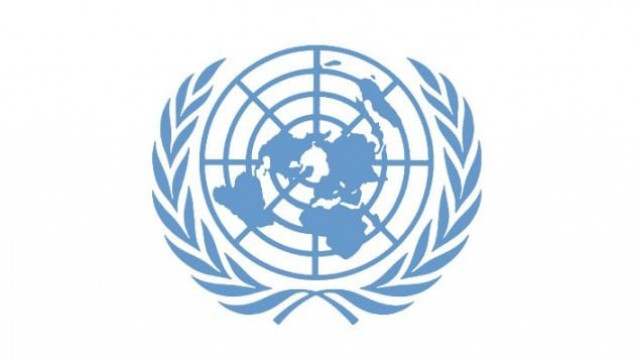Call for funds: Direly needed aid for flood, war affected still not coming
UN official identifies $117 million gap in aid requirements and pledges.

An estimated $169 million are required to help the flood-affected and internally-displaced communities, but so far donors have only pledged $52 million.
This was said by Catherine Bragg, the United Nations (UN) assistant secretary general for humanitarian affairs and deputy emergency relief coordinator, during a press conference on Monday.

Bragg was on a four-day visit to assess and draw attention to the needs of flood-affected communities in southern Pakistan and displaced families in the northwest.
“Hundreds of thousands of people are displaced in the northwest and millions remain affected by the floods precipitated by this year’s monsoon,” she said. “We require funding from donors even without a formal appeal to support the government. We look to donors for their generosity.”
Bragg said the UN has not made a formal appeal, but has shared an internal memo with donors. She said 75 to 80% of the requirements for internally displaced persons have been pledged and paid, but the remaining 20 to 25% are urgently needed as winter is approaching.
“There is a funding shortage - as is most often the case in a protracted crisis - $79 million are urgently required to meet immediate needs,” she said.
Bragg also visited the Jalozai camp, the largest camp in the northwest with 11% of the 744,000 people displaced from Federally Administered Tribal Areas, on Saturday.
She also met with families affected by 2012 floods in the Jagan Union Council in Sindh and took a helicopter tour of flood-affected areas in Sindh and Balochistan.
She said over one million people are still estimated to be in need of healthcare, water and sanitation services, but the biggest problem is that people have lost their livelihoods.
Responding to a question on food shortage, Bragg said the government has made it clear that there is sufficient food and it does not need to import food items.
She said the UN wants to adopt a “resilience approach” to disaster management by linking humanitarian and development actors and initiating long and short term actions simultaneously in the aftermath of a natural disaster.
As a second step, the approach aims to “manage the risk, not the crisis” by going for early warning mechanisms and early action techniques, she explained
She lauded the efforts of the government and the National Disaster Management Authority (NDMA), saying that Pakistan has continued to strengthen its response capacity and institutional frameworks in the face of repeated disasters.
“The UN support for the third flooding in Pakistan in three years should not be considered as an indication of Pakistan’s dependence on foreign aid to face disasters,” she said.
“This is about international solidarity. It is unfair to say there is no will on the part of the government to face disasters.”
Published in The Express Tribune, November 20th, 2012.



















COMMENTS
Comments are moderated and generally will be posted if they are on-topic and not abusive.
For more information, please see our Comments FAQ